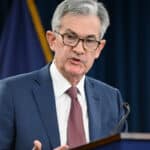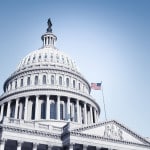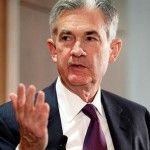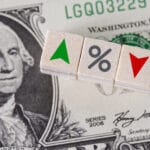
US Home Construction Jumps Nationally, Declines in Northeast
The rise in June put home construction at a seasonally adjusted annual rate of 1.64 million units, the Commerce Department reported Tuesday.

The rise in June put home construction at a seasonally adjusted annual rate of 1.64 million units, the Commerce Department reported Tuesday.

A federal freeze on most evictions enacted last year is scheduled to expire July 31, after the Biden administration extended the date by a month.

Federal Reserve Chair Jerome Powell says that inflation “will likely remain elevated in coming months” before “moderating,” an apparent acknowledgement that price gains have been larger and more persistent than many economists forecast.

President Joe Biden signed an executive order on July 9 targeting what he labeled anticompetitive practices in banking and other parts of the economy, declaring it would fortify an American ideal “that true capitalism depends on fair and open competition.”

The U.S. Chamber of Commerce and the AFL-CIO, along with trade groups representing manufacturers and retailers, announced the coalition Thursday.

Pfizer is about to seek U.S. authorization for a third dose of its COVID-19 vaccine, saying Thursday that another shot within 12 months could dramatically boost immunity and maybe help ward off the latest worrisome coronavirus mutant.

Federal Reserve officials began discussing at their meeting last month the mechanics of reducing their huge monthly bond purchases that are used to keep longer-term interest rates in check.

Last year, companies around the U.S. scrambled to figure out how to shut down their offices and set up their employees for remote work as the COVID-19 virus suddenly bore down on the world.
Now, in a mirror image, they are scrambling to figure out how to bring many of those employees back.

U.S. construction spending fell 0.3 percent in May. Growth in housing, the economy’s standout performer, slowed while activity in areas most directly impacted by the pandemic showed further weakness.

All 23 of the nation’s biggest banks are healthy enough to withstand a sudden economic catastrophe, the Federal Reserve said Thursday.

Congress on Thursday overturned a set of regulations enacted in the final days of the Trump administration that effectively allowed payday lenders to avoid state laws capping interest rates.

President Joe Biden and a bipartisan group of senators have reached an agreement to significantly boost infrastructure spending, though considerable hurdles remain before the blueprint unveiled Thursday becomes reality.

The Biden administration has extended the nationwide ban on evictions for a month to help tenants who are unable to make rent payments during the coronavirus pandemic, but it said this is expected to be the last time it does so.

The Supreme Court on Wednesday ruled that the structure of the agency that oversees mortgage giants Fannie Mae and Freddie Mac violates separation of powers principles in the Constitution.

Some pandemic-era policies that had expired on Tuesday – such as requiring judges to stay eviction cases while a tenant seeks state rental aid – were quickly extended Wednesday after Republican Gov. Charlie Baker signed a bill sent to him by state lawmakers.

Federal Reserve Chair Jerome Powell said Wednesday that the central bank is thinking about winding down the policy, which has helped fuel a record home-buying and refinance spree, but hasn’t settled on a time frame.

The Federal Reserve signaled Wednesday that it may act sooner than previously planned to start dialing back the low-interest rate policies that have helped fuel a swift rebound from the pandemic recession but have also coincided with rising inflation.

The Fed faces a dilemma: On the one hand, inflation is rising much faster than it had projected earlier this year, due to supply shortages and a fast recovery. On the other hand, hiring has been slower than the benchmark that Chair Jerome Powell is looking for.

President Joe Biden is pursuing “multiple paths forward” as he looks to muscle his big infrastructure package through Congress – dialing up lawmakers from both parties in search of a bipartisan deal while imploring Democrats to be ready to go it alone if necessary.

Many U.S. companies have rushed to appoint Black members to their boards of directors since racial justice protests swept the country last year.